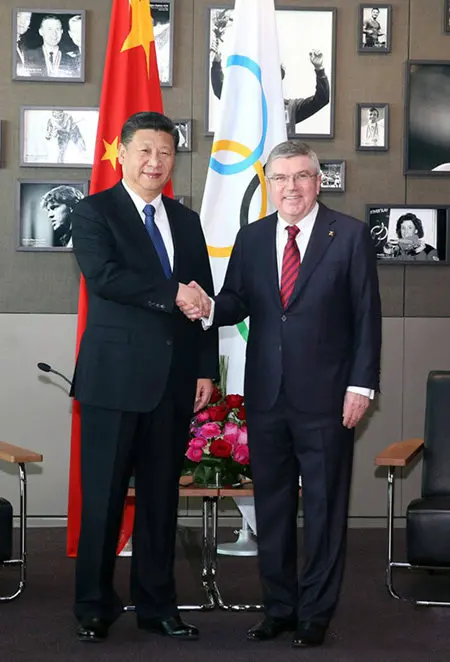By Lu Jiafei
In case you become inundated with news about U.S. President Donald Trump’s ambiguous stance on white supremacy after a deadly Alt-right rally in Virginia last weekend, let me remind you of something bombastic he also dropped last week.
No, I’m not talking about his epic exchange of chest-thumping alpha-male rhetoric with the Democratic People’s Republic of Korea (DPRK) that threatens to drag us into war. I’m talking about his military threat to Venezuela.
Emerging from a meeting with his Secretary of State Rex Tillerson and U.S. Ambassador to the United Nations Nikki Haley on Friday at his New Jersey golf club, Trump told reporters that military options against Venezuela were on the table.
Despite U.S. staunch opposition to Venezuela’s election for a National Constituent Assembly, it was the first time the idea of possible U.S. invasion of the Latin American country, currently reeling from domestic chaos, had ever emerged.
Like his other off-the-cuff remarks, usually tinged with inaccuracy, exaggeration and spontaneity, it is hard to fathom out the seriousness of Trump’s military warning this time.
Is it an empty menace in a bid to put outside pressure on Venezuelan President Nicolas Maduro? Or is it simply another display of the reality-TV-star-turned-president’s love of twists and turns?
“We have many options for Venezuela and by the way, I’m not going to rule out a military option,” said the former reality television star on “The Apprentice.”
Trump also added that, “we’re all over the world and we have troops all over the world in places that are very, very far away. Venezuela is not very far away and the people are suffering and dying.”
Trump’s seemingly amateurish rationale behind his military warning is jaw-dropping: since the United States is playing the role of the world police far away, why not send troops to the nearby Venezuela?
So far, multiple signs have indicated that this was another episode of Trump making bombastic comments on a major foreign policy on a whim.
Just days before Trump’s military warning to Venezuela, his national security advisor H.R. McMaster rejected the idea of a military intervention from any outside source in an interview with MSNBC.
Also on Monday, despite Trump’s claim of military options for Venezuela, a Pentagon spokesman confirmed to reporters that the U.S. military hadn’t been asked to provide any military options.
Less than seven months into Trump’s presidency, we’ve already found ourselves seated on the front row, witnessing his show of spontaneity and starting to feel the consequence of his taste for gut-driven unpredictability.
His “fire and fury” response to the DPRK last week was another chilling example of Trumpian spontaneity.
Just days after the international community worked together to jointly condemn the DPRK’s pursuit of the nuke and impose new sanctions, Trump vented his spleen in a move that surprised even his top aides, exclaiming that the DPRK “best not make any more threats to the United States. They will be met with fire and fury like the world has never seen.”
With his rant of “fire and fury” reminding the world of the language used by former U.S. President Harry Truman in 1945 after the United States dropped a nuclear bomb on Hiroshima, the DPRK military soon responded that its plan to strike the American territory of Guam with intermediate missiles will be ready by mid-August and its implementation will depend on a decision by DPRK top leader Kim Jong Un.
As the situation immediately escalated, U.S. Defense Secretary Jim Mattis was left few choice without contradicting the commander-in-chief except to issue stern military warning to the DPRK as deterrence despite the fact that he warned against military action on the Korean Peninsula on several occasions before.
Days before Trump officially took office in January, former CIA Director John Brennan warned him against spontaneity in an interview with FOX News.
“Therefore when he speaks or when he reacts, just make sure he understands that the implications and impact on the United States could be profound,” said Brennan.
We all now know what chaos a U.S. president given to spontaneity and free-talking could cause. The question is, does Trump himself know?
After spending one year in Palestine covering the Israeli-Palestinian conflict between 2013 and 2014, Jiafei Lu moved to Washington, D.C. in 2015 and started covering the U.S. presidential election till the very end of Donald Trump's upset victory early November, 2016. Since then, he has been working as a diplomatic correspondent for Xinhua.
(ASIA PACIFIC DAILY)
 简体中文
简体中文

